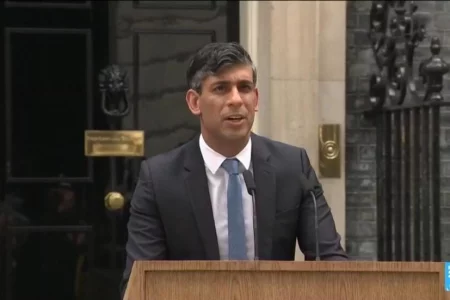Washington (AFP) – A secret cell headed by CIA and Mossad chiefs, and multiple contacts between US President Joe Biden and leaders of Israel, Qatar, and Egypt underpinned an “excruciating” five weeks resulting in the truce agreement, a US official said.
In a detailed account to reporters by a senior US official speaking on condition of anonymity, a picture has emerged of a tense international effort beset by sudden communication cutoffs with Hamas, disputes over hostage lists, and safety concerns on the ground.
The US official said the “extremely excruciating five-week process” of negotiations began with a call from Qatar to Washington and the Israelis, in a bid to free some of the hostages snatched by Palestinian militants during their October 7 raids on Israel.
On Wednesday, Israel and Hamas announced a truce deal allowing the release of at least 50 hostages held by Hamas in exchange for Palestinian prisoners in Israeli jails.
Qatar, which brokered the agreement, “asked that a cell be established to work on the issue very carefully, very secretly, together with the Israelis”, the US official said.
Qatar hosts a Hamas political office, and has behind-the-scenes diplomatic links with Israel. It is also home to the largest US military base in the region.
Biden administration officials were having “daily, sometimes hourly, senior level of engagement with Qatar, with Egypt and with Israel on the issue of the hostages,” according to the official.
The president himself entered the talks, holding Zoom calls with families of victims on October 13, followed by his visit to Israel five days later.
The release of two American citizens on October 20 was seen as “a pilot process” for the overall negotiations, the official said.
“We were able to track, kind of in real time, the (hostages) as they moved from Gaza, ultimately across the border and into freedom,” the American said.
Their safe return “gave us some confidence that… Qatar really could deliver through the cell that we had established.”
Biden ‘engaged daily’
Soon Mossad director David Barnea and CIA chief William Burns were also deeply involved.
A flurry of phone calls between Biden and Israeli Prime Minister Benjamin Netanyahu followed on October 20, 22, 23 and 25.
Biden “was engaged daily as extremely difficult talks and proposals were traded back and forth,” the official said, noting that discussions centered around transportation corridors, surveillance and timeframes.
Hamas came under intense pressure to produce a list of hostages.
Communication proved difficult as messages had to pass from Doha or Cairo into Gaza and back.
By October 25, Hamas was saying it could guarantee about 50 releases in the first phase, but their formal list came up short: just 10 names.
On November 9, the CIA’s Burns rushed to Doha to help thrash out a deal text, but the identification of hostages remained a sticking point.
Biden called the emir of Qatar, Sheikh Tamim bin Hamad Al-Thani, on November 12 and “made very clear that where we were was not enough,” the US official said.
Shortly afterwards, “Hamas produced the identifying criteria for the 50 hostages.”
As Israel’s bombing of Gaza intensified and civilian deaths soared, Biden called Netanyahu on November 14 urging him to “move forward with this deal,” and the prime minister ultimately agreed, the official said.
But suddenly, with a deal in sight that day, “everything stalled again,” the US official said. Hamas had broken off talks.
Biden called the Qatari emir on November 17, according to the official, to make clear the deal “had to close.”
Two days later, the Americans met with Egyptian intelligence chief Abbas Kamel and received assurances from Hamas “closing the gaps,” the US official said.
“For the first time (they) really see this coming together.”




